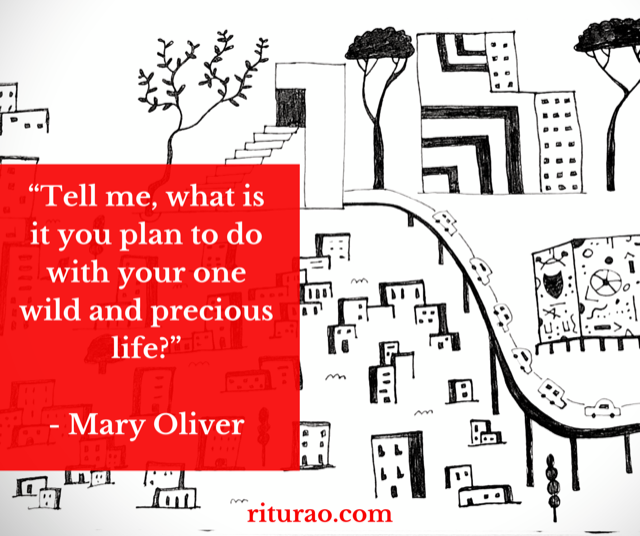
When it comes to plans, we have very stubborn beliefs.
If you love plans, you love that they give your life and living structure, a direction, a purpose. Plans keep you moving. Plans make you feel secure.
If you’re not much of a planner, you prefer to go with the flow. Planning seems like a lot of work only to be derailed, because life rarely ever goes as planned. Just look at yesterday. Or the day before. You weren’t supposed to lose that job. You weren’t planning on getting divorced. And you certainly never planned on eating those cupcakes. Life happens, and you have to learn to flow with it.
Maybe you fall somewhere in between, where planning works for a few things, but you tend to go with the flow on others.
There are elements of truth on all those fronts.
But what if you’re stuck, unsure about what to do, or grappling with difficult decisions and so paralyzed you can’t get yourself to do anything?
If you’re a planner by nature, you might struggle when things don’t go as expected. Or you might procrastinate putting a plan together until it’s perfect.
And if you don’t plan much, well, things have a way of piling up and if you ignore them for too long, life comes at you pretty quick.
So, is a flawed, imperfect plan better than no plan at all?
Yes.
Is this a definitive answer? I don’t know. I call it a best-case-scenario answer for what seems to work most often.
Because whether you’re seeking perfection in a plan or forgoing it altogether to go with the flow, you’re absolving yourself of responsibility.
As we go through life and face struggles—and we all do—one of our biggest motivations is to move toward what we want.
What makes our struggles worse (although not the only thing) is not knowing what we want. We sometimes know what we want, but not always. Sometimes it’s because we’re not honest with ourselves. Sometimes it’s because we are afraid. Or we are simply too caught up in our busyness and our emotions to get clear on what we really want.
A plan, even a flawed one, forces us to specify what we want. It gives us a place to start, because if we don’t start, we cannot move forward. We may get it wrong at first, but then at least we can modify it as we go. We can see our mistakes, and correct them. Mistakes are opportunities to confront the reality that things didn’t go as expected.
Even with the best plan, you may not get everything you want. That’s true.
But even with a flawed plan, the probability that you’ll get some of what you want goes way up.
With no plan, by which I mean no clear purpose, no direction, the chances of getting exactly what you want are pretty slim. You’re putting the entire burden of getting what you want on pure luck.
So get a plan together. Not on a fancy planner with expert artwork or a full set of bright markers. A pen and paper will do.
Know it will likely be a bad plan, at first. Reality likes to make itself known and felt. It’s okay to keep the stakes low. This is way better than drifting, and then wondering why life isn’t giving you what you so desperately want and need.
What works is time and attention, and honest, serious thought to what you want, for yourself, your family, your life, and why. Do this once, or better, a few times, and you’ll notice a change in your energy, a shift in your focus, and a change in your perspective and approach.
As Mary Oliver so rightly asked,
Tell me, what is it you plan to do with your one wild and precious life?
I used to tell my clients that the time you know the least about your new biz/book/whatever is now, so we plan, but we plan to adapt.
Yet planning is the most intimidating when we know the least about how to proceed. Adaptation, even the openness to do so, is no small feat.